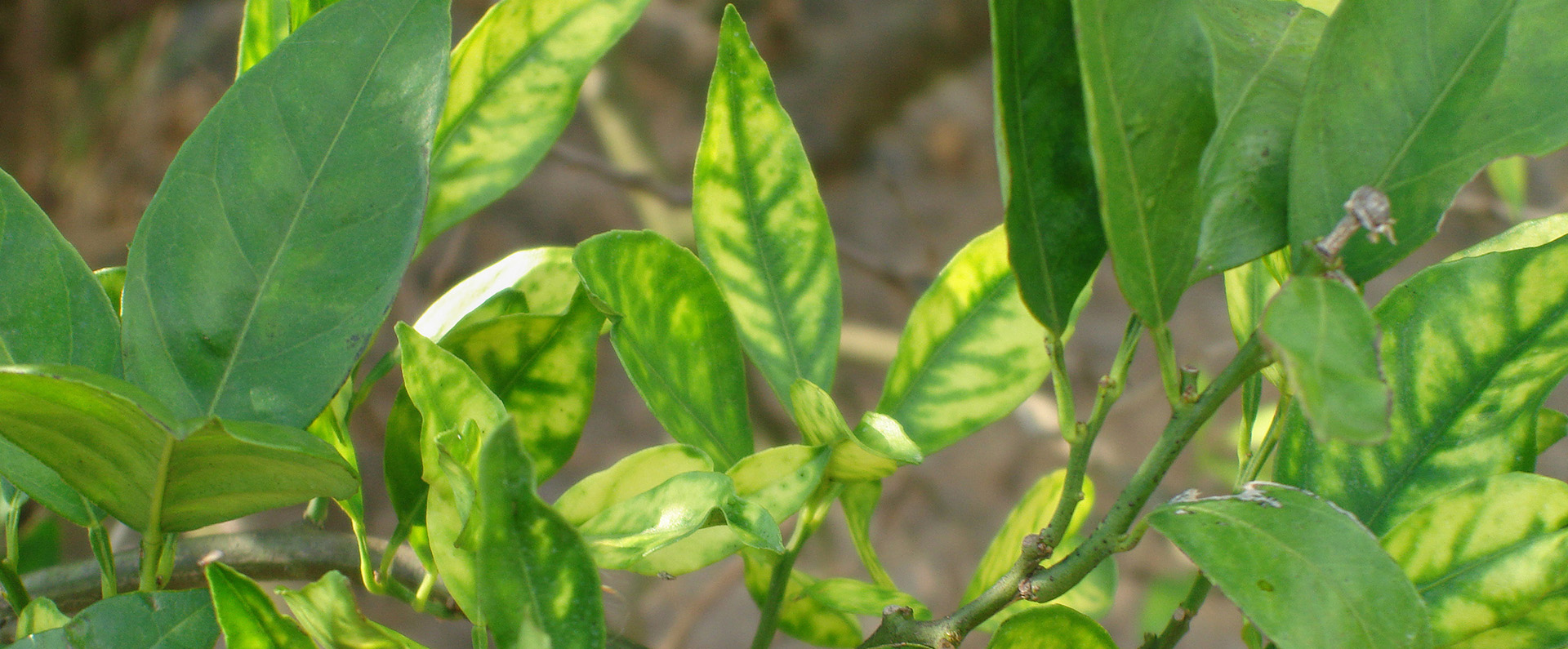Guarding Against Citrus Greening
Citrus greening, also known as Huanglongbing (HLB), is a disease costing citrus growers millions of dollars annually. Once present only in Florida, the disease has spread to parts of Texas and California. HLB is the most serious threat to the U.S. citrus industry in history. ARS researchers are developing new strategies to combat this devastating disease, including introducing an improved diagnostic test to detect the responsible bacterium. This bacterium is transmitted from plant to plant by the Asian citrus psyllid, and reliably detecting and quantifying the bacterium is crucial for preventing citrus greening outbreaks. During the past year, ARS scientists conducted field trials and improved the assay test currently used by USDA's Animal and Plant Health Inspection Service (APHIS) to detect the disease in citrus groves.
ARS researchers made another unique advance in protecting our Nation's citrus from diseases—using dogs to detect citrus diseases. A team of researchers trained 10 dogs to detect citrus greening and 3 dogs to detect citrus canker with accuracy rates in excess of 99.97 percent. APHIS will deploy trained dogs during the next 2 years and is working with dog training companies to commercialize this service. The use of trained dogs is the only currently available way to quickly detect citrus greening before symptoms are visible. That makes dogs an especially valuable tool in the fight to manage citrus greening.
Related Information
Briefing Paper: Citrus Greening — What ARS Is Doing
Video: USDA APHIS Citrus Greening



